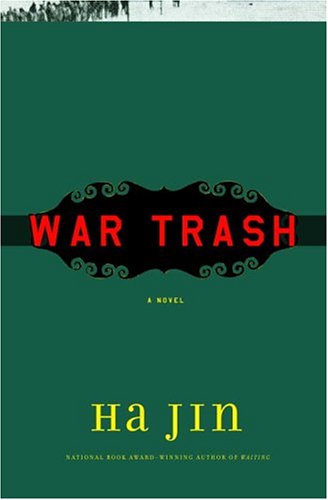War Trash
At the onset of the Korean War, all that Yu Yuan wants to do is to take care of his elderly mother and marry Julan, his fiancée. But as a recent graduate of the Huangpu Military Academy, he gets assigned to the People’s Liberation Army, and is sent to fight in the conflict. Though not a party member, Yuan is happy with the order the three-year-old Communist government has brought to China. His superiors say American soldiers are “soft” and poorly trained. A week after crossing into North Korea, however, food supplies run out. Yuan and his fellow soldiers fight on desperately and are captured. From then on, the novel presents his struggle to survive, to “stay away from the herd,” and go back home. Speaking English fluently, Yuan becomes a commodity in the POW camp divided between the Communists, who want to return to China, and the Nationalists, supported by Chiang Kai-Shek and the American government, trying to draw them away to Taiwan.
Poet, novelist, and National Book Award winner (Waiting) Ha Jin sets Yuan’s tenacious battle against a backdrop of cruelty, fanaticism, isolation, and loneliness. Drawing from factual prisoner accounts, the novel is written as a memoir, elegiac and spare in tone, with evocative descriptions of small Korean villages, and powerful imagery (“So much blood flowed on a hill slope that the next morning hundreds of rooks flew around with blood-stained wings”). The tale is full of humanity and pathos, and Yuan’s voice remains convincing and humane, echoing soldier-poet Wilfrid Owen’s words on young men “who died as cattle,” and alluding to the common sentiments of all soldiers when quoting their longings and sadness in an ancient Chinese poem. War Trash grabs the reader and doesn’t let go. (War Trash won the 2005 PEN/Faulkner Award. –ed.)










